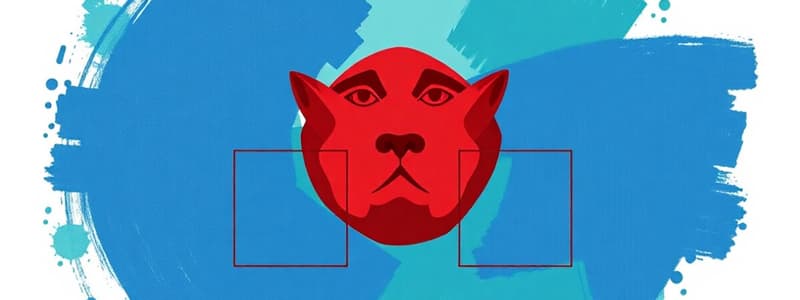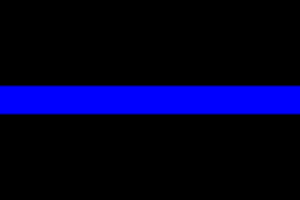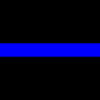Podcast
Questions and Answers
What does the Constitution define?
What does the Constitution define?
The Constitution defines the principles and rules of the government.
What are the two types of centralization of the government?
What are the two types of centralization of the government?
What is the function of the Legislative branch of government?
What is the function of the Legislative branch of government?
What is the main purpose of Supernational institutions?
What is the main purpose of Supernational institutions?
Signup and view all the answers
Intergovernmental institutions surrender sovereignty to a central authority.
Intergovernmental institutions surrender sovereignty to a central authority.
Signup and view all the answers
Which of the following is NOT a difference between Supernational and Intergovernmental institutions?
Which of the following is NOT a difference between Supernational and Intergovernmental institutions?
Signup and view all the answers
What is the primary influence of policy actors?
What is the primary influence of policy actors?
Signup and view all the answers
Which of these is NOT a characteristic of policy actors?
Which of these is NOT a characteristic of policy actors?
Signup and view all the answers
Who is considered a public actor?
Who is considered a public actor?
Signup and view all the answers
Which of the following is NOT a private actor?
Which of the following is NOT a private actor?
Signup and view all the answers
What is an epistemic community?
What is an epistemic community?
Signup and view all the answers
What does a meritocratic system emphasize in a bureaucracy?
What does a meritocratic system emphasize in a bureaucracy?
Signup and view all the answers
Explain the Spoils system.
Explain the Spoils system.
Signup and view all the answers
The Meritocratic system prioritizes political loyalty over expertise.
The Meritocratic system prioritizes political loyalty over expertise.
Signup and view all the answers
Which of the following is NOT a stage of the Policy cycle?
Which of the following is NOT a stage of the Policy cycle?
Signup and view all the answers
What is the relationship between structure and agency?
What is the relationship between structure and agency?
Signup and view all the answers
What are the three types of knowledge that must be considered in policy making?
What are the three types of knowledge that must be considered in policy making?
Signup and view all the answers
Wicked problems are simple to define and solve.
Wicked problems are simple to define and solve.
Signup and view all the answers
Which of the following is NOT a characteristic of a Wicked problem?
Which of the following is NOT a characteristic of a Wicked problem?
Signup and view all the answers
What is a Super wicked problem?
What is a Super wicked problem?
Signup and view all the answers
Wicked problems are more urgent than Super wicked problems.
Wicked problems are more urgent than Super wicked problems.
Signup and view all the answers
What key skill is essential for policy actors?
What key skill is essential for policy actors?
Signup and view all the answers
Study Notes
Constitutional Framework
- A constitution defines the fundamental principles and rules that govern a government.
Centralization Types
- Unitary System: A single central government holds all power.
- Federal System: Power is shared between a central and several regional governments.
Branches of Power
- Legislative: Creates laws.
- Executive: Enforces laws.
- Judiciary: Interprets laws. These branches limit each other and are accountable for their actions.
Supernational Institutions
- Strength: Address issues needing transnational cooperation.
- Weakness: Member states lose some sovereignty.
Intergovernmental Institutions
- Member states cooperate voluntarily without surrendering sovereignty.
Supernational vs. Intergovernmental Institutions
- Sovereignty: Surrender some versus none.
- Authority: Direct authority versus consensus.
- Decision-Making: Majority vote vs. consensus.
Policy Actor Characteristics
- Capability: Influence based on resources.
- Perception: Understanding of social issues.
- Preferences: Goals and values affecting actions.
Public Actors
- Executive: Implements and enforces laws.
- Ministries: Executive branches focused on specific areas (e.g., health, education).
Private Actors
- Interest Groups: Lobbying groups.
- Social Movements: Activism.
- Experts: Specialized knowledge.
Epistemic Communities
- Groups of experts who share beliefs and approaches to problems.
Bureaucratic Systems
- Meritocratic: Based on expertise and skills.
- Spoils System: Based on political loyalty.
Policy Cycle Stages
- Agenda Setting: Identifying issues.
- Formulation: Developing solutions.
- Decision: Choosing a course of action.
- Implementation: Carrying out the decision.
- Evaluation: Assessing the impact.
Structure vs. Agency
- Structure: Pre-existing norms and values shaping society.
- Agency: Actors' ability to act independently. Structures limit agency; agency shapes structures.
Essential Knowledge Types
- Analytical: Understanding of problems.
- Operational: Practical solutions.
- Political: Social and political context.
Wicked Problems
- Characteristics: Indefinite problems, no clear solutions, uncertain consequences, and multiple stakeholders with different goals.
Super Wicked Problems
- Super wicked problems are wicked problems with time constraints that lead to analytical, operational, and political challenges.
Policy Actor Skills
- Political Acumen: Knowledge and experience in politics.
- Analytical Skills: Critical thinking.
- Managerial Skills: Organizing and leading.
Studying That Suits You
Use AI to generate personalized quizzes and flashcards to suit your learning preferences.
Description
Explore the fundamental structures that define government operations with a focus on constitutional frameworks. This quiz covers unitary and federal systems, the branches of power, and the characteristics of supranational and intergovernmental institutions. Test your knowledge on how these elements interact and affect governance today.





